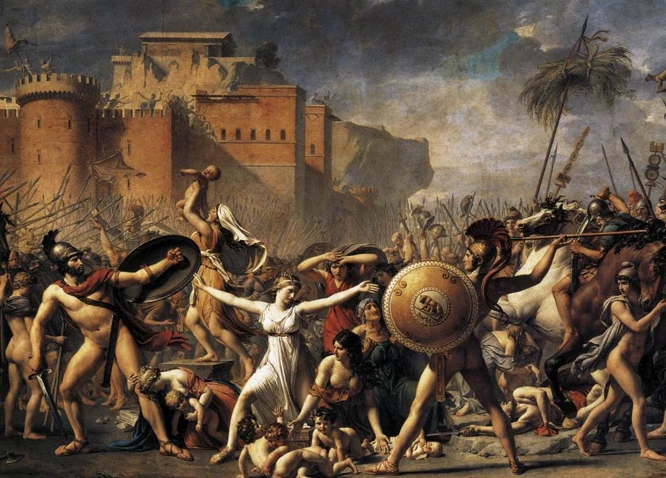Roman mythology is a captivating tapestry of gods, goddesses, heroes, and legends that have intrigued and bewitched people for centuries. Among the vast array of compelling stories and characters, the role of women stands out as a radiant thread woven throughout this ancient mythological tapestry. From powerful goddesses who ruled over domains of love, marriage, and war, to heroic women who defied societal expectations and charted their own destinies, to divine spirits who protected and nurtured the home, the women of Roman mythology played a multifaceted and influential role. This article explores the vibrant and multifaceted role of women in Roman mythology, shining a light on both the prominent goddesses and the inspiring heroines who left an indelible mark on the ancient Roman world.
Contents
- Goddesses in Roman Mythology
- Heroines in Roman Mythology
- Divine Female Spirits in Roman Mythology
- Conclusion
-
Frequently Asked Questions
- 1. Who were the major goddesses in Roman mythology?
- 2. What was the role of Juno in Roman mythology?
- 3. What aspects of life did Venus govern?
- 4. Who was Diana and what was her significance in Roman mythology?
- 5. Who was Livia in Roman mythology?
- 6. What makes Camilla a notable character in Roman mythology?
- 7. What is the significance of Lucretia in Roman mythology?
- 8. What are Lares in Roman mythology?
- 9. Who were the Penates in Roman mythology?
- 10. What is the significance of the role of women in Roman mythology?
- References
-
Frequently Asked Questions
- 1. What is the significance of women in Roman mythology?
- 2. Who were the prominent goddesses in Roman mythology?
- 3. What is Juno known for in Roman mythology?
- 4. What is Venus known for in Roman mythology?
- 5. What role does Diana play in Roman mythology?
- 6. Who were the notable heroines in Roman mythology?
- 7. Why is Livia considered an influential matriarch in Roman mythology?
- 8. What makes Camilla a notable figure in Roman mythology?
- 9. Why is Lucretia considered the symbol of virtue in Roman mythology?
- 10. What are Lares and Penates in Roman mythology?
- References
- Read More
Goddesses in Roman Mythology
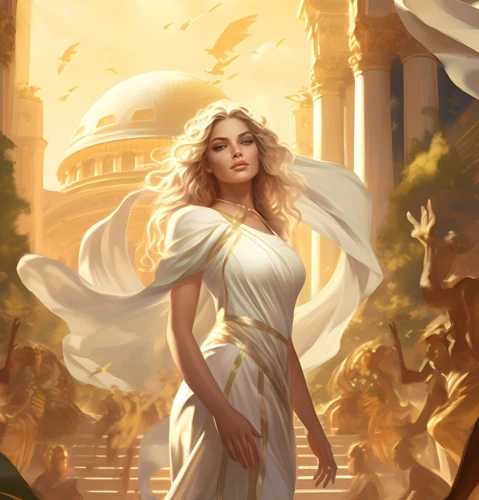
Goddesses in Roman mythology were revered and celebrated for their extraordinary powers and influence over various aspects of life. One such goddess is Juno, often referred to as the Queen of Gods. She was the goddess of marriage, childbirth, and the patroness of Rome itself. With her commanding presence and regal demeanor, Juno commanded respect and admiration. Another fascinating goddess is Venus, the embodiment of love, beauty, and desire. She captivated the hearts of both mortals and gods, and her allure was known throughout the ancient world. Lastly, we have Diana, the goddess of the hunt and the moon. Known for her independence and fierce spirit, Diana symbolized strength and femininity. Her connection to the wilderness and her skill with the bow and arrow made her a formidable figure. These powerful goddesses were just a few of many who embodied different facets of womanhood in Roman mythology. [exploring-cygnus-the-swan]
Juno – The Queen of Gods
Juno, known as the Queen of Gods in Roman mythology, held a position of great power and authority. She was the wife and sister of Jupiter, the king of the gods, and together they ruled over the pantheon. Juno was primarily associated with marriage and childbirth, making her a symbol of fertility and union. As the protector of women and advocate for marriages, Juno was often invoked during wedding ceremonies and festivals. She was depicted as a majestic and regal figure, often portrayed wearing a crown and holding a scepter as symbols of her authority. Juno was also known for her unwavering loyalty and commitment to her husband, despite his many infidelities. Despite her divine status, Juno was not invulnerable to jealousy and anger, particularly when it came to her husband’s affairs with other goddesses or mortals. One famous myth involving Juno is her involvement in the Trojan War, where she played a key role in the events leading up to the war as a result of a dispute with Paris, the prince of Troy. Despite her occasional vengeful nature, Juno was ultimately a complex and multifaceted goddess who commanded respect and admiration. Her role as the Queen of Gods solidified her position as one of the most powerful and influential deities in Roman mythology. [slug-myth-legends-constellation-orion]
Venus – The Goddess of Love
Venus, the Goddess of Love, was a prominent figure in Roman mythology. She was adored and revered for her beauty, grace, and charm. With her captivating presence, Venus had the power to enchant mortals and gods alike. She symbolized not only romantic love but also fertility and prosperity. According to legend, Venus was born from the sea foam that emerged after the Titan Cronus castrated his father Uranus and threw his genitalia into the ocean. As a result, Venus was associated with the sea, and her birth gave her a unique ethereal quality. This goddess was often depicted in art with flowing, golden hair, delicate features, and a radiant aura. Her captivating allure was known throughout the ancient world, and she had numerous admirers among both mortal men and divine beings. Venus had a complex personality, embodying both love and passion, as well as jealousy and revenge when her affections were not reciprocated. Her most famous love affair was with the handsome mortal shepherd, Anchises, with whom she had a son named Aeneas. Aeneas went on to become the legendary founder of the city of Rome, linking Venus to the destiny and prosperity of the Roman empire. Venus was not only a symbol of love but also a protector of beauty, desire, and feminine power. Her influence extended beyond romantic love, as she was also associated with domestic harmony, abundance, and fertility. The cult of Venus was widely celebrated throughout ancient Rome, with numerous temples and shrines dedicated to her worship. To honor her, lavish festivals called the Venalia were held annually. These celebrations included processions, games, and performances, all aimed at appeasing and honoring the goddess of love. As a result, Venus held a significant place in the hearts and minds of the Roman people, who sought her blessings and favor in matters of the heart. Today, her legacy lives on, and the name Venus is still synonymous with love, beauty, and desire. [slug-myth-legends-constellation-orion]
Diana – The Goddess of the Hunt
Diana, also known as Artemis in Greek mythology, was a prominent goddess in Roman mythology and held the esteemed title of “Goddess of the Hunt.” She was envisioned as a fierce and independent deity, embodying the untamed wilderness and the art of hunting. Diana was often depicted as a young woman adorned with a hunting bow and quiver of arrows, ready to pursue her prey with speed and precision. As the goddess of the hunt, she had the ability to communicate with and command animals, making her a fearless and skilled hunter. Diana’s association with the moon further accentuated her mystical nature, as she was often believed to roam the night alongside her loyal companions, a pack of loyal hunting dogs. She was also considered the protector of virgins and guardian of childbirth, adding another layer to her divine role. Diana’s significance extended beyond the realm of hunting; she represented the pursuit of freedom, independence, and the preservation of the natural world. Her mythological presence inspired reverence and awe among the ancient Romans, who honored her through rituals, temples, and festivals dedicated to her name. Today, Diana’s legacy endures as a symbol of female strength, courage, and the harmonious relationship between humans and nature. [slug-myth-legends-constellation-orion]
Heroines in Roman Mythology
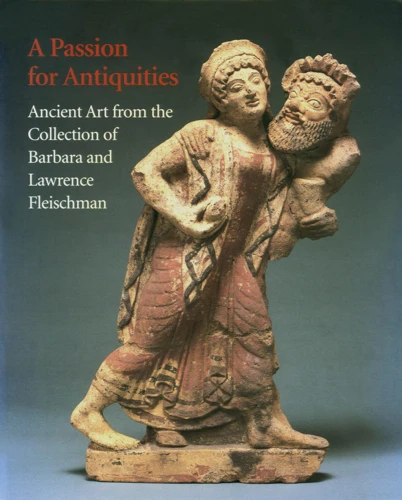
Heroines in Roman mythology exemplify strength, courage, and resilience, challenging societal norms and leaving an indelible mark on the ancient world. One notable heroine is Livia, an influential matriarch who held immense power and commanded respect. As the wife of Emperor Augustus, Livia played a pivotal role in shaping the Roman Empire through her deft political maneuvering and strategic alliances. Another remarkable heroine is Camilla, the warrior princess who was renowned for her exceptional skill in battle. She led the Volscian army with unparalleled valor and fearlessness, becoming a symbol of female empowerment and military prowess. Lastly, we have Lucretia, whose tragic story became synonymous with virtue and honor. Her unwavering commitment to personal integrity served as a catalyst for political change in ancient Rome. These inspiring heroines paved the way for future generations and demonstrated the enduring power of women in ancient Roman mythology. [slug-myth-legends-constellation-orion].
Livia – The Influential Matriarch
Livia, known as The Influential Matriarch, was a significant figure in Roman mythology and history. She was the wife of Emperor Augustus and played a vital role in shaping the Roman Empire. As one of the most politically astute and influential women of her time, Livia exerted her power behind the scenes, influencing political decisions and policies. Her strategic alliances and cunning maneuvering earned her the reputation of a skilled diplomat and a master manipulator. Livia’s influential position as the emperor’s wife allowed her to exercise considerable authority and control over Rome’s affairs. Despite the constraints placed on women in Roman society, Livia managed to accumulate substantial wealth and properties, further solidifying her position of power. Her enduring influence even continued after her husband’s death, as she exerted control over the succession of emperors. Livia’s legacy as an influential matriarch is a testament to the significant role women played in shaping the history of Rome. [slug-myth-legends-constellation-orion]
Camilla – The Warrior Princess
Camilla was a legendary figure in Roman mythology, known as the Warrior Princess. She hailed from the Volsci tribe and possessed unparalleled skill in combat. Camilla was renowned for her speed and agility, which enabled her to swiftly traverse the battlefield and strike down her foes with precision. She was a fearless and formidable warrior, often depicted in armor and wielding a spear or bow. Camilla’s extraordinary abilities earned her the admiration and respect of both men and women alike. Her dedication to her craft and indomitable spirit made her a symbol of female empowerment and strength. Camilla’s story serves as a reminder that women in Roman mythology were not confined to traditional gender roles but could rise above societal expectations and achieve greatness in their own right. [slug-myth-legends-constellation-orion]
Lucretia – The Symbol of Virtue
Lucretia holds a significant place in Roman mythology as the embodiment of virtue and honor. Her story reflects the idealized values of the Roman society and the consequences of betrayal. According to legend, Lucretia was a noblewoman known for her exceptional purity and fidelity. Her virtue caught the attention of Sextus Tarquinius, the son of the tyrannical Etruscan king, Tarquinius Superbus. In a despicable act, Sextus Tarquinius assaulted Lucretia, causing her great distress and shame. Determined to preserve her dignity and uphold the virtues she held dear, Lucretia made a fateful decision. She revealed the assault to her husband and father, calling upon them to avenge her honor. The tragedy of Lucretia’s story lies in her despair and the burden she carried, which led to her decision to take her own life. Her act of self-sacrifice served as a catalyst for the overthrow of the Etruscan monarchy and the establishment of the Roman Republic. Lucretia’s legacy endures as a symbol of virtue and the power of personal integrity. Her story serves as a reminder of the importance of honor and righteousness in both personal and societal contexts. [slug-myth-legends-constellation-orion]
Divine Female Spirits in Roman Mythology
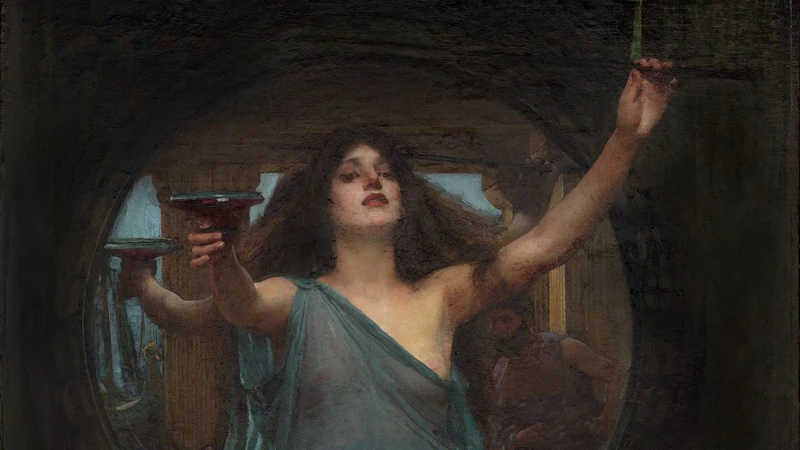
In addition to the goddesses and heroines, Roman mythology also included divine female spirits that held significant roles in the belief system of the ancient Romans. One such group of spirits were the Lares, protectors of the home. These household deities were honored and respected as guardians of the family and the household. They were believed to bring prosperity, happiness, and security to those who worshipped them. Another group of spirits were the Penates, guardians of the pantry. These spirits were associated with the abundance and prosperity of the home, ensuring that the pantry was always well-stocked and the family never went hungry. These divine female spirits played a vital role in the everyday lives of the Romans, providing a sense of comfort, protection, and nourishment. [journey-whirlpool-galaxy]
Lares – Protectors of the Home
The Lares were revered as the protectors of the home in Roman mythology. These divine spirits were believed to watch over the household, safeguarding the family and ensuring their well-being. They were seen as benevolent beings, often depicted as youthful figures with a cornucopia or a bowl of fruit in their hands, symbolizing abundance and prosperity. The Lares were venerated and worshipped by families, who set up small altars or shrines within their homes to honor them. Offerings of food, wine, and flowers were made to these household deities to maintain their favor and protection. The presence of the Lares brought a sense of security and harmony to the household, granting blessings upon the family and their domestic affairs. The belief in the Lares as guardians of the home was deeply ingrained in Roman society, emphasizing the importance of maintaining a sacred and harmonious living space. Whether it was protecting the family from harm or ensuring a bountiful harvest, the Lares played a vital role in the daily lives of the Romans. [slug-myth-legends-constellation-orion]
Penates – Guardians of the Pantry
The Penates are fascinating divine female spirits in Roman mythology who hold the important role of being the guardians of the pantry. These household deities were believed to protect the food stores and ensure the prosperity and well-being of the family. The word “Penates” comes from the Latin word “penus,” which means “pantry” or “food store.” They were often depicted as small statues or figurines placed in the pantry or kitchen area. The Penates were seen as benevolent beings who watched over the food supplies, ensuring that the family never went hungry. They were also believed to bring good fortune and abundance to the household. The Romans would often offer prayers and sacrifices to the Penates to seek their blessings and protection. The role of these divine guardians highlights the significance of food and sustenance in Roman culture, and their presence in the household served as a reminder of the importance of nourishment and abundance. [slug-myth-legends-constellation-orion]
Conclusion
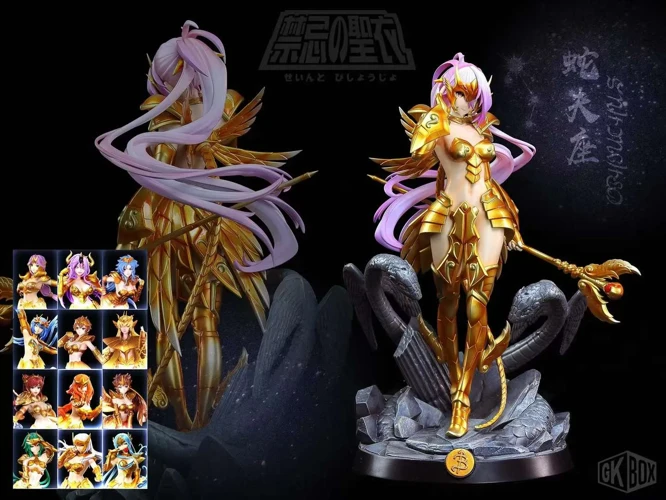
The rich tapestry of Roman mythology is enriched by the significant role played by women. From powerful goddesses to heroic heroines, they have left an indelible mark on the ancient Roman world. The goddesses, such as Juno, Venus, and Diana, symbolized different aspects of womanhood and held important positions in the pantheon of gods. Juno, as the Queen of Gods, was revered as the goddess of marriage, childbirth, and the patroness of Rome. Venus, on the other hand, embodied love, beauty, and desire, captivating the hearts of mortals and gods alike. Diana, the goddess of the hunt and the moon, represented independence, strength, and femininity. These goddesses showcased the diverse roles and qualities attributed to women in Roman society.
In addition to the powerful goddesses, Roman mythology also recognized the valor and courage of heroines such as Livia, Camilla, and Lucretia. Livia, the influential matriarch, exercised her political prowess, shaping the destiny of the Roman Empire. Camilla, the warrior princess, defied societal expectations, displaying remarkable skill and bravery on the battlefield. Lucretia, the symbol of virtue, exemplified the ideals of purity and honor. These heroines challenged traditional gender roles and left their mark on Roman mythology as extraordinary women of strength and character.
Furthermore, divine female spirits like Lares and Penates played crucial roles in Roman households, protecting the home and ensuring its prosperity. Lares were the guardians of the home, offering protection to the family and overseeing its well-being. Penates, on the other hand, safeguarded the pantry, ensuring an abundance of food and sustenance for the household. These female spirits provided a sense of security and comfort, enhancing the role of women in Roman domestic life.
In conclusion, the role of women in Roman mythology is multifaceted and diverse. From powerful goddesses, heroic heroines, to divine spirits, women played integral roles in shaping Roman society and mythology. Their influence extended beyond traditional gender roles and exemplified strength, beauty, independence, and wisdom. The vivid tapestry of Roman mythology is enriched by the captivating stories and characters attributed to these remarkable women, showcasing their importance and significance in ancient Roman culture. [slug-myth-legends-constellation-orion]
Frequently Asked Questions

1. Who were the major goddesses in Roman mythology?
The major goddesses in Roman mythology included Juno, the Queen of Gods; Venus, the Goddess of Love; and Diana, the Goddess of the Hunt.
2. What was the role of Juno in Roman mythology?
Juno was considered the Queen of Gods and had dominion over marriage, childbirth, and was also the patroness of Rome.
3. What aspects of life did Venus govern?
Venus, the Goddess of Love, had control over matters related to love, beauty, desire, and fertility.
4. Who was Diana and what was her significance in Roman mythology?
Diana was the Goddess of the Hunt and the Moon. She represented independence, strength, and femininity, and was known for her mastery of the bow and arrow.
5. Who was Livia in Roman mythology?
Livia was an influential matriarch and prominent figure in Roman mythology. She was the wife of Emperor Augustus and known for her political power and influence.
6. What makes Camilla a notable character in Roman mythology?
Camilla was a warrior princess who defied societal expectations. Her exceptional combat skills and courage made her a symbol of female empowerment in Roman mythology.
7. What is the significance of Lucretia in Roman mythology?
Lucretia symbolizes virtue and morality in Roman mythology. Her tragic story of sexual assault and bravery serves as a reminder of the importance of honor.
8. What are Lares in Roman mythology?
Lares are divine spirits that were believed to protect and watch over the home and family in Roman mythology.
9. Who were the Penates in Roman mythology?
The Penates were guardian deities associated with the pantry and household provisions. They symbolized abundance and nourishment.
10. What is the significance of the role of women in Roman mythology?
The role of women in Roman mythology showcased their diverse abilities, from being powerful goddesses and influential figures to embodying virtues and challenging societal norms.
References
Frequently Asked Questions

1. What is the significance of women in Roman mythology?
Women play a vital role in Roman mythology as they embody various aspects of power, beauty, and virtue. They are often depicted as goddesses, heroines, and divine spirits, representing different aspects of life and nature.
2. Who were the prominent goddesses in Roman mythology?
Some prominent goddesses in Roman mythology include Juno, the queen of gods; Venus, the goddess of love; and Diana, the goddess of the hunt. Each goddess possesses unique qualities and holds significant influence over different spheres of life.
3. What is Juno known for in Roman mythology?
Juno is known as the queen of gods and the wife of Jupiter. She is associated with marriage, childbirth, and the protection of women. Juno also represents power, wisdom, and authority, making her a central figure in Roman mythology.
4. What is Venus known for in Roman mythology?
Venus is the goddess of love and beauty in Roman mythology. She is often associated with desire, passion, and fertility. Venus has immense influence over romantic relationships, seduction, and the arts.
5. What role does Diana play in Roman mythology?
Diana is the goddess of the hunt and the moon. She symbolizes the wild and untamed aspects of nature. Diana is revered for her independence, strength, and connection to the wilderness.
6. Who were the notable heroines in Roman mythology?
Some notable heroines in Roman mythology include Livia, an influential matriarch; Camilla, a warrior princess; and Lucretia, a symbol of virtue. Each heroine represents different aspects of strength, leadership, and resilience.
7. Why is Livia considered an influential matriarch in Roman mythology?
Livia was the wife of Emperor Augustus and renowned for her political acumen. She exercised significant power and influence in the Roman Empire, contributing to the stability and success of the dynasty.
8. What makes Camilla a notable figure in Roman mythology?
Camilla is celebrated as a warrior princess and a skilled hunter. She is often depicted as a symbol of female strength and bravery. Camilla’s feats in battle and her devotion to her people have made her a legendary figure in Roman mythology.
9. Why is Lucretia considered the symbol of virtue in Roman mythology?
Lucretia’s story revolves around her unwavering commitment to virtue and honor. She symbolizes purity, modesty, and loyalty. Lucretia’s tragic fate and her unwavering morals have made her an enduring symbol of virtue in Roman mythology.
10. What are Lares and Penates in Roman mythology?
Lares are divine spirits believed to protect the home, family, and ancestors. Penates, on the other hand, are guardians of the pantry and ensure the household’s prosperity and abundance. Both Lares and Penates hold essential roles in maintaining harmony and well-being within a Roman household.

